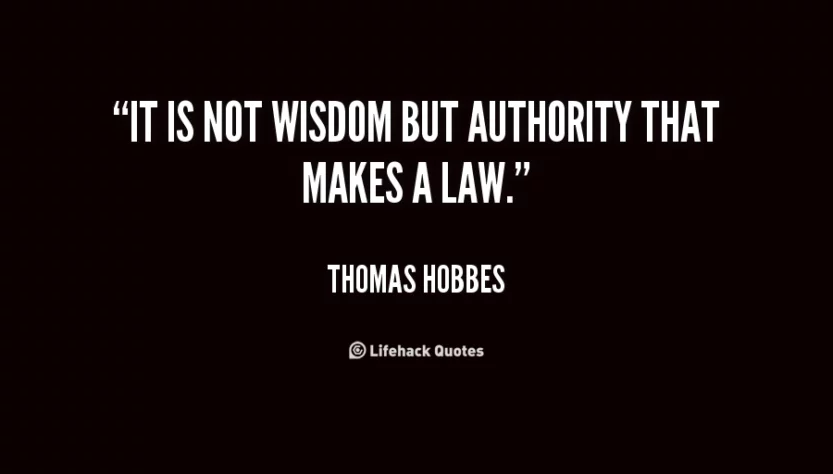In the realm of law and governance, the dichotomy between wisdom and authority has been a subject of profound debate for centuries. T. Tymoff’s assertion, “It is not wisdom but authority that makes a law,” ignites a discourse questioning the fundamental basis upon which laws are established and implemented within societies.
Unveiling T. Tymoff’s Assertion
T. Tymoff’s statement challenges conventional perceptions regarding the origins and nature of law. At its core, it scrutinizes whether laws are crafted based on the inherent wisdom, moral compass, and collective understanding of a society or if they are merely dictated by authoritative entities wielding power.
Understanding Tymoff’s Perspective
T. Tymoff seemingly implies that the creation and enforcement of laws aren’t necessarily rooted in wisdom or intellectual depth but rather in the command and dominion wielded by authoritative figures or institutions. This viewpoint provokes contemplation on the true essence of laws—whether they emerge from rational, ethical principles or are imposed to maintain order and control.

FAQs:
1. What does Tymoff mean by “authority” in the context of making laws?
T. Tymoff refers to the power structures or entities vested with the ability to dictate and enforce laws. This authority might rest in the hands of governments, legislative bodies, monarchs, or any entity empowered to establish and implement legal frameworks.
2. Does Tymoff entirely dismiss wisdom’s role in lawmaking?
While Tymoff seemingly emphasizes the dominance of authority, it doesn’t imply a complete disregard for wisdom. Rather, it prompts critical examination by highlighting the prevalence of authoritative imposition in the formulation of laws.
3. How does this assertion impact the perception of law within societies?
T. Tymoff’s statement challenges individuals to question the legitimacy and moral grounding of laws. It urges societies to evaluate whether laws derive from rationality, collective wisdom, and ethical considerations or are predominantly instruments of control and power.
4. Can wisdom and authority coexist in the creation of laws?
Ideally, an equilibrium between wisdom and authority should shape lawmaking. Wisdom derived from ethical principles, social consensus, and moral reasoning could ideally guide authoritative bodies in formulating just and equitable laws.
5. Are there historical or contemporary examples that support Tymoff’s assertion?
Throughout history, instances exist where laws were enacted and enforced more as instruments of control rather than as embodiments of societal wisdom. Contemporary examples of authoritarian regimes often exhibit laws enforced solely to maintain authority rather than fostering societal well-being.
Tymoff’s statement serves as a catalyst for introspection, compelling us to scrutinize the underpinnings of laws and the balance between wisdom and authority in their creation and implementation. It challenges societies to reassess the true essence and purpose of laws in shaping a just and harmonious existence.
Conclusion
T. Tymoff’s assertion propels us to reassess the very essence of laws—questioning whether they emerge from the collective wisdom of humanity or are primarily tools wielded by authorities for control. Contemplating this dichotomy fosters a deeper understanding of the intricate relationship between wisdom and authority in the realm of lawmaking.




